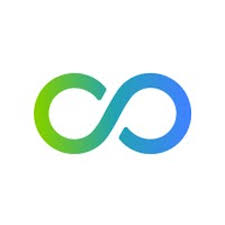HHS Launches Initiative to Enforce Rules Against Health Data Blocking

The U.S. Department of Health and Human Services (HHS) has announced a new initiative to step up enforcement against health care entities that engage in information blocking — the practice of restricting access, exchange, or use of electronic health information (EHI).
The directive comes from HHS Secretary Robert F. Kennedy, Jr., who has instructed the department to dedicate additional resources to curbing practices that limit patients’ access to their own health data. The effort will involve coordinated action between the Office of the Assistant Secretary for Technology Policy/Office of the National Coordinator for Health IT (ASTP/ONC) and the HHS Office of Inspector General (OIG).
Renewed Focus on Patient Data Access
Information blocking — first addressed under the 21st Century Cures Act of 2016 — was not previously a top enforcement priority. Under the current administration, HHS is emphasizing accountability for those who violate data-sharing rules.
“Unblocking the flow of health information is critical to unleashing health IT innovation and transforming our healthcare ecosystem,” said Deputy Secretary of Health and Human Services Jim O’Neill. “We will take appropriate action against any health care actors who are found to be blocking health data for patients, caregivers, providers, health innovators, and others.”
Access to EHI enables patients to monitor chronic conditions, track treatments, identify errors in medical records, and engage in wellness and disease management programs. Expanding that access, according to HHS, is essential to improving transparency and patient engagement.
Enforcement and Oversight
Acting Inspector General Juliet T. Hodgkins emphasized that the department intends to pursue violations aggressively.
“Patients must have unfettered access to their health information as guaranteed by law,” Hodgkins said. “Providers and certain health IT entities have a legal duty to ensure that information flows where and when it’s needed. HHS-OIG will deploy all available authorities to investigate and hold violators accountable.”
Tom Keane, MD, Assistant Secretary for Technology Policy and National Coordinator for Health Information Technology, added that ONC has already begun reviewing reports of information blocking among certified health IT developers and is providing technical assistance to OIG in support of investigations.
Continuing Efforts Under the Cures Act
The initiative builds on the ONC Cures Act Final Rule, issued during President Trump’s first term. That rule established requirements to improve health information access and IT choice by ensuring that:
- Patients can access their electronic health information at no cost, including through apps of their choice.
- Providers can select the digital tools that best meet their clinical needs without facing undue cost or technical barriers.
Reporting and Penalties
HHS is urging patients, providers, payers, and technology companies to report potential information blocking through the ASTP/ONC Report Information Blocking Portal.
Entities found to be in violation of federal information blocking regulations may face significant consequences, including:
- Health care providers participating in certain Centers for Medicare & Medicaid Services (CMS) programs could face disincentives under those programs.
- Health IT developers or entities defined as health information networks or exchanges may incur civil monetary penalties of up to $1 million per violation.
- Developers with ONC-certified products risk termination of certification and potential exclusion from the ONC Health IT Certification Program.
The department’s announcement serves as both a warning to entities still engaging in data blocking and a call to action for stakeholders across the healthcare system to help ensure the lawful, secure flow of patient health information.






